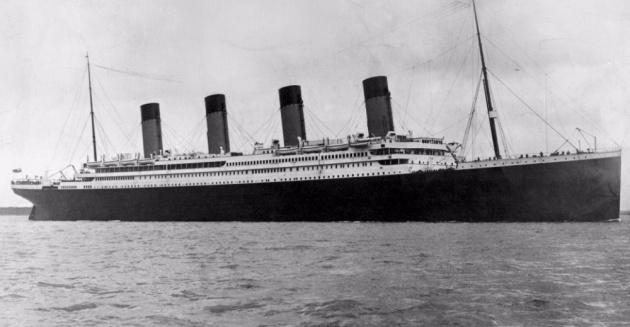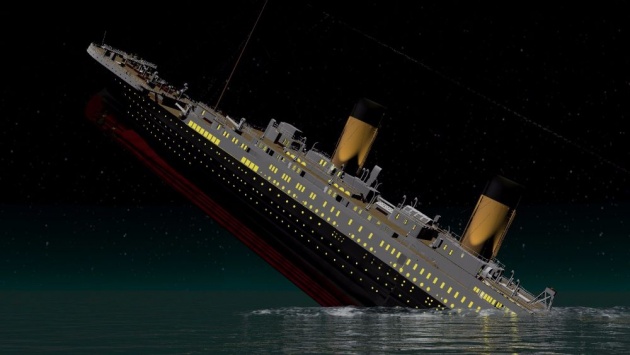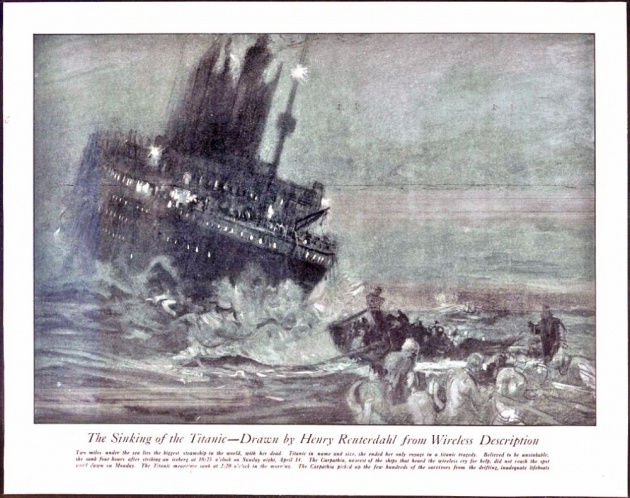On April 10, 1912, the Titanic, biggest boat above water, left Southampton, England on her first trip to New York City. The White Star Line had saved no cost in guaranteeing her extravagance. A legend even before she cruised, her travelers were a blend of the world's wealthiest lolling in the style of five star lodging and settlers pressed into steerage.

The Washington Post declares the disasterShe was touted as the most secure ship ever assembled, so sheltered that she conveyed just 20 rafts - enough to give settlement to just a large portion of her 2,200 travelers and team. This error laid on the conviction that since the boat's development made her "resilient," her rafts were important just to protect survivors of other sinking ships. Moreover, rafts took up profitable deck space.
Four days into her trip, at 11:40 P.M. on the night of April 14, she struck an ice shelf. Her fire fighter contrasted the sound of the contact with "the tearing of calico, nothing all the more." However, the crash was lethal and the frigid water soon poured through the boat.

It got to be evident that numerous would not discover security in a raft. Every traveler was issued an existence coat yet future would be short when presented to water four degrees underneath solidifying. As the forward part of the boat sank more profound, travelers mixed to the stern. John Thayer saw the sinking from a raft. "We could see gatherings of the right around fifteen hundred individuals still on board, sticking in groups or packs, such as swarming honey bees; just to fall in masses, sets or independently, as the considerable after part of the boat, two hundred and fifty feet of it, rose into the sky, till it came to a sixty-five or seventy degree edge." The colossal ship gradually slid underneath the waters two hours and forty minutes after the crash
The following morning, the liner Carpathia saved 705 survivors. One thousand five hundred twenty-two travelers and group were lost. Ensuing request credited the high death toll to a lacking number of rafts and deficient preparing in their utilization.
End of a Splendid Journey
Elizabeth Shutes, matured 40, was tutor to nineteen-year-old Margaret Graham who was going with her guardians. As Shutes and her charge sit in their First Class lodge they feel a shiver go through the boat. At initially helped by her faith in the wellbeing of the boat, Elizabeth's poise is soon broken by the acknowledgment of the inescapable catastrophe:
"All of a sudden a strange trembling kept running under me, clearly the entire length of the boat. Startled by the very oddness of the shuddering movement, I sprang to the floor. With excessively culminate a trust in that relentless vessel I again set down. Somebody thumped at my entryway, and the voice of a companion said: 'Come rapidly to my lodge; an ice shelf has quite recently passed our window; I know we have quite recently struck one.'
No disarray, no clamor of any sort, one could trust no threat impending. Our attendant came and said she could learn nothing. Watching out into the companionway I saw heads showing up making inquiries from half-shut entryways. All sepulchrally still, no fervor. I sat down once more. My companion was at this point dressed; still her little girl and I chatted on, Margaret professing to eat a sandwich. Her hand shook so that the bread stayed with separating from the chicken. At that point I saw she was unnerved, and surprisingly I was as well, yet why get dressed, as nobody had given the smallest clue of any conceivable threat? An officer's top passed the entryway. I asked: 'Is there a mishap or peril of any sort? 'None, so far as I probably am aware', was his obliging answer, talked discreetly and generally sympathetic. This same officer then entered a lodge a little separation down the companionway and, at this point skeptical of everything, I listened eagerly, and unmistakably listened, 'We can keep the water out for some time.' Then, and not until then, did I understand the frightfulness of a mischance adrift. Presently it was past the point where it is possible to dress; no time for a waist, yet a coat and skirt were soon on; shoes were faster than shoes; the attendant put on our life-preservers, and we were simply prepared when Mr Roebling came to let us know he would take us to our companion's mom, who was holding up above ...
Two rafts approach
the Carpathia April 15, 1912No snickering throng, however on either side [of the staircases] stand discreetly, courageously, the stewards, all outfitted with the white, spooky life-preservers. Continuously the thing one tries not to see notwithstanding crossing a ship. Presently just pale faces, every structure strapped about with those white bars. So abhorrent a scene. We went on. The terrible farewells. The tranquil look of trust in the daring men's eyes as the wives were put into the rafts. Nothing got away one at this frightful minute. We cleared out from the sun deck, seventy-five feet over the water. Mr Case and Mr Roebling, courageous American men, saw us to the raft, attempted to spare themselves, yet ventured back on deck. Later they went to a regarded grave.
Our raft, with thirty-six in it, started bringing down to the ocean. This was done in the midst of the best perplexity. Harsh sailors all giving diverse requests. No officer on board. As stand out side of the ropes worked, the raft at one time was in such a position, to the point that it appeared we should upset in mid-air. Finally the ropes cooperated, and we moved closer and closer the dark, sleek water. The primary touch of our raft on that dark ocean came to me as a last farewell to life, thus we put off - a minor vessel on an incredible ocean - paddled far from what had been a protected home for five days.
The primary wish with respect to all was to stay close to the Titanic. We all felt such a great amount of more secure close to the boat. Unquestionably such a vessel couldn't sink. I thought the risk must be misrepresented, and we could all be taken on board once more. Yet, unquestionably the layout of that incredible, great boat was becoming less. The bow of the vessel was getting dark. Light after light was vanishing, and now those unpleasant sailors put to their paddles and we were advised to chase under seats, wherever, anyplace, for a lamp, a light of any sort. Each spot was vacant. There was no water - no stimulant of any sort. Not a scone - nothing to keep us alive had we floated long...
Sitting by me in the raft were a mother and girl. The mother had left a spouse on the Titanic, and the little girl a father
Survivors on the deck
of the Carpathiaand spouse, keeping in mind we were close to alternate pontoons those two stricken ladies would get out a name and ask, 'Are you there?' 'No,'would return the dreadful answer, yet these courageous ladies never lost mettle, overlooked their own particular distress, instructing me to sit near them to keep warm... The life-preservers kept us warm, however the night was severe icy, and it became colder and colder, and just before day break, the coldest, breaking point of all, no assistance appeared to be conceivable...

...The stars gradually vanished, and in their place came the weak pink shine of one more day. At that point I listened, 'A light, a boat.' I proved unable, would not, look while there was a touch of uncertainty, yet kept my eyes away. Throughout the night I had listened, 'A light!' Each time it turned out to be one of our different rafts, somebody lighting a bit of paper, anything they could discover to copy, and now I couldn't accept. Somebody found a daily paper; it was lit and held up. At that point I looked and saw a boat. A boat splendid with lights; solid and enduring she held up, and we were to be spared. A straw cap was offered it would blaze longer. That same ship that had come to spare us may run us down. In any case, no; she is still. The two, the boat and the first light, met up, a living painting."



